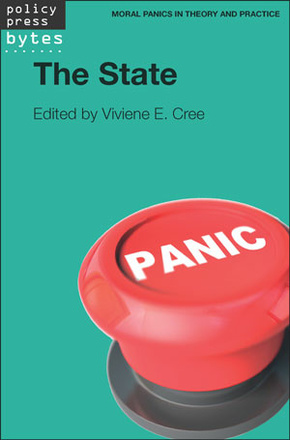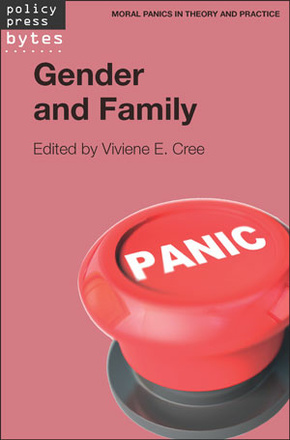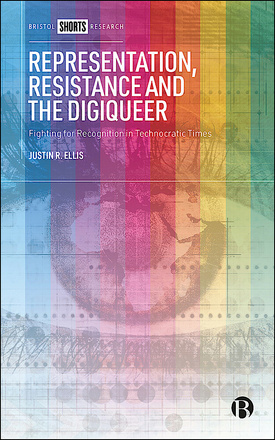SOCIAL SCIENCE / Criminology
The State
Through case-study examples this Byte explores individual and social problems that are characterised as moral panics.
Moral Regulation
This byte teases out some of the fundamentally moral questions that continue to perplex us, about life and death, good and evil, and sex and the body.
Gender and Family
An insight into some of the central debates and questions about gender and the family, examined through the lens of moral panic.
Demonising the Other
The Criminalisation of Morality
Throughout history there has always been an ‘other’, often based on culture, race, gender or class, that has been demonised by the majority. Whitehead challenges the idea that this is an inevitable fact of life. This important book offers a resolution that benefits society as a whole rather than just the powerful few.
Imprisonment Worldwide
The Current Situation and an Alternative Future
Providing a comprehensive account of prison populations worldwide, this new work links prison statistics from the last 15 years with considerations of how prisons and prison populations are managed. It is a major contribution to the knowledge of those currently debating prisons and the use of imprisonment.
Regulating Police Detention
Voices from behind Closed Doors
Custody visitors are volunteers who make unannounced visits to police custody blocks to check on the welfare of detainees. However, there is a fundamental power imbalance between the police and these visitors. This timely book offers detailed proposals for radically reforming custody visiting to make it an effective regulator of police behaviour.
Privatising Probation
Is Transforming Rehabilitation the End of the Probation Ideal?
This topical book looks at the attitudes of probation practitioners and managers to the philosophy, values, and practicalities of the Transforming Rehabilitation agenda. It provides unique insights into the values, attitudes and beliefs of probation staff and their delivery of services.
50 Dark Destinations
Crime and Contemporary Tourism
From the Alcatraz East Crime Museum to Jack the Ripper guided tours, ‘dark tourism’ is now a multi-million-pound global industry. Highlighting 50 travel destinations across six continents, expert criminologists, psychologists and historians expose a worrying trend in contemporary consumer culture in which many of us partake.
50 Facts Everyone Should Know About Crime and Punishment in Britain
This exciting book presents 50 key facts related to crime and criminal justice policy in Britain. Offering thought-provoking insights into the study of crime, this fascinating “go to” book reveals the myths and realities of crime in contemporary Britain.
The Short Guide to Criminal Justice
The Short Guide to Criminal Justice provides a comprehensive, yet concise, introduction to the criminal justice system in the United Kingdom. It includes many student-friendly features such as case study boxes, tables showing key facts and figures and links to data sources and further reading.
Good Policing
Trust, Legitimacy and Authority
Renowned criminologist Mike Hough considers how the police service might build trust, legitimacy and compliance with the law in this important book. He challenges conventional thinking on crime, contrasts ‘hard’ and ‘soft’ policing styles and offers a fresh approach that secures compliance with the law through ethical policing.
Representation, Resistance and the Digiqueer
Fighting for Recognition in Technocratic Times
Digital media technologies have enabled some LGBTQ+ individuals and communities to successfully organise for basic rights and justice, albeit at a risk of harassment and assault. Justin Ellis brings a ‘digiqueer’ perspective to LGBTQ+ identity formation through social media networks and considers the effects of surveillance technologies.


















